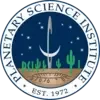NASA’s Solar System Exploration Research Virtual Institute, or SSERVI, awarded PSI Research Scientist Jamie Molaro with the 2024 Susan Mahan Niebur Early Career Award. The award is given to an investigator who is within 10 years of receiving their doctorate and has made significant contributions to the exploration science communities.
Molaro, who studies weathering and landscape evolution on airless icy and rocky bodies, spoke virtually to a crowd attending the award ceremony at Washington University in St. Louis on July 25 about how she tries to not let traditional expectations limit her work as a scientist.
She received her doctorate from the University of Arizona in 2015, then became a NASA postdoctoral program fellow at NASA’s Jet Propulsion Laboratory. Molaro is a former participating scientist on NASA’s OSIRIS-REx mission and current member of the sample science team, as well as a co-investigator for Project ESPRESSO, short for Exploration Science Pathfinder Research for Enhancing Solar System Observations, through SSERVI.
In 2019, she did what she considers some of her most important work with OSIRIS-REx when she discovered evidence that heating of the asteroid’s boulders from the Sun was causing them to fracture and eject debris into space – a process scientists believed was important, but Molaro’s work confirmed.
However, Molaro said she was feeling burnt out after an intense few years of research, so she sought out alternate ways to contribute to science and grow as a scientist. During this time, she founded a peer networking and support organization for Disabled scientists, called Disabled for Accessibility In Space, or DAIS. Through her work with DAIS she got involved with AstroAccess, where she led research to advance accessible design in space environments for future Disabled astronauts.
Her passion for outreach started long ago. In 2013 she established The Art of Planetary Science, a public engagement effort to help people connect to science through art shows and workshops.
“Efforts like AstroAccess and The Art of Planetary Science are about actively including non-academic and diverse voices and perspectives in space exploration,” she said. “And they make important contributions to the scientific community and society.”
To other early-career scientists she said, “Don’t let other people’s definition of science define how you do it or what makes you a scientist. The dimensionality that comes from experiences outside of traditional research will make you a better scientist.”
She has received numerous awards and honors, including the NASA Planetary Science Early Career Award in 2023 and the naming of Asteroid 30379 Molaro by the International Astronomical Union in 2021.

